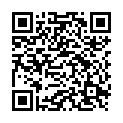|
|
|
| Module code: E920 |
|
1V+1U (2 hours per week) |
|
3 |
| Semester: 9 |
| Mandatory course: no |
Language of instruction:
German |
Assessment:
Oral examination, project work
[updated 12.03.2010]
|
E920 Electrical Engineering, Master, ASPO 01.10.2005
, semester 9, optional course
|
30 class hours (= 22.5 clock hours) over a 15-week period.
The total student study time is 90 hours (equivalent to 3 ECTS credits).
There are therefore 67.5 hours available for class preparation and follow-up work and exam preparation.
|
Recommended prerequisites (modules):
None.
|
Recommended as prerequisite for:
|
Module coordinator:
Prof. Dr.-Ing. Dietmar Brück |
Lecturer:
Prof. Dr.-Ing. Dietmar Brück
[updated 12.03.2010]
|
Learning outcomes:
This course introduces students to the field of robotics and provides them with an understanding of the structure, areas of application and handling of robotic systems including robot systems integrated into other production automation setups.
[updated 12.03.2010]
|
Module content:
1.Mechanical structure of various robot systems; drive systems; measurement
systems; definition of the most important parameters such as accuracy, repeat
accuracy, positional accuracy, etc; calibration and monitoring of operation
2.Robot dynamics, work space, safety technology
3.Programming robots: online programming, offline programming, teach-in,
simulation, linking
4.Example applications in the laboratory
[updated 12.03.2010]
|
Teaching methods/Media:
Lecture notes, overhead transparencies, video projector, PC, CD
[updated 12.03.2010]
|
Recommended or required reading:
At the beginning of the course, students will be issued with a CD containing all the teaching material used in this module. The CD also contains a complete and regularly updated list of recommended reading materials.
[updated 12.03.2010]
|


